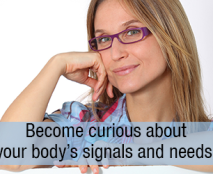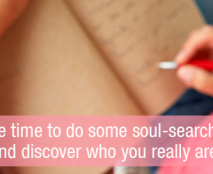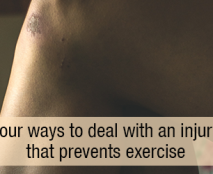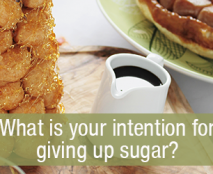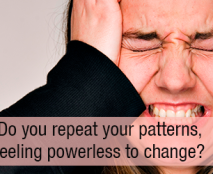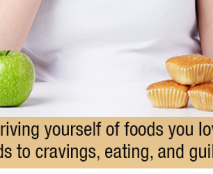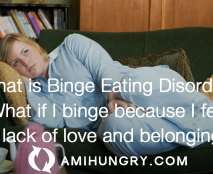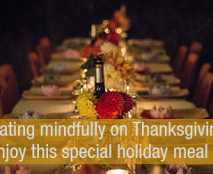As I stood in the cosmetics check-out line, I casually noticed the size diversity of the women waiting, in sharp contrast to the giant posters in the windows advertising a much narrower definition of beauty.
Pause and listen to your body. Becoming curious about its signals and needs will transform your relationship with your body into a partnership.
Take the time to really get to know the person you spend the most time with. You might realize that it is pretty easy to love the one you're with!
If you're injured and can't exercise, learn why a break from exercise is a good thing, how to trust your body wisdom, and discover new activities you enjoy!
If you practice mindful eating to heal your relationship with food, you may wonder whether giving up sugar for Lent is restrictive and could set you back.
Whether you're setting health goals, personal goals, or professional goals, the key to successful New Year's Resolutions is to create a strategic plan.
Despite our enthusiasm for a fresh start, New Year's resolutions are often short-lived. To make this New Year different, focus on why you do what you do.
When you're "not allowed" to eat foods you love, you may develop feelings of restriction and deprivation which lead to powerful cravings and overeating.
In this video, Dr. Michelle May addresses the question, “What if you binge because you live alone and lack a feeling of love and belonging?” As difficult as it may be to fathom, the first step to breaking this cycle is self-compassion.
By eating mindfully on Thanksgiving, you'll experience optimal pleasure by truly appreciating the wonderful occasion and delicious foods.


